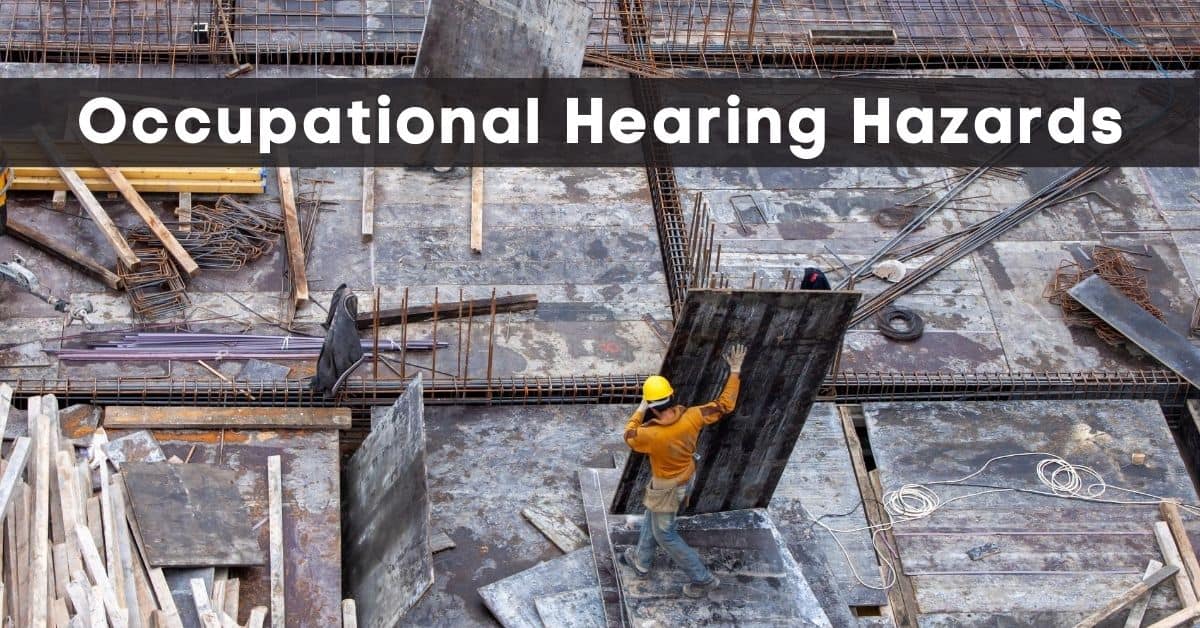- The Advantages of Rechargeable Hearing Aids - July 16, 2024
- How to Enjoy Music Festivals While Protecting Your Hearing - July 3, 2024
- Over-the-Counter Hearing Aids vs. Custom Hearing Aids - June 28, 2024
It comes as no surprise that workplaces carry certain safety risks. Many who work in factories and manufacturing sites will be familiar with potential occupational hazards. Luckily, there are lots of measures taken by employers to ensure their employees are safe and healthy.
Those working in offices can experience workplace injuries from lifting heavy items and the potential damage from sitting and tying on a computer for long periods.
Though such types of danger in the workplace may be more common, another risk can often go unnoticed: noise.
Hearing loss and the workplace
More than 22 million employees are exposed to potentially harmful noise at work each year in the United States alone.
The Occupational Safety and Health Administration (OSHA) put legislation in place that compels employers to shield their workers from exposure to hazardous noise. Using these laws, around $242 million has been spent on workers ‘ compensation for occupational hearing loss alone per year.
It is hard to comprehend the impact of occupational noise exposure on the workers – How can we quantify the pain and suffering caused by losing one’s hearing prematurely due to work noise? Therefore, it is essential to be aware of how one may be exposed to workplace hearing hazards. And when we are aware of those risks, we can defend ourselves against them appropriately.
How noise can affect our ears
We endure a certain amount of noise without causing permanent damage to our ears. But hazardous workplace noise starts at the sound levels of around 85 dB for human hearing. Around 85 dB, our ears can endure 8 hours of sound exposure before hearing loss is sustained. This level is about the same as standing next to a vacuum cleaner.
In a typical 8 hour workday, 85 dB is also the starting point where OSHA mandates hearing protection for staff. However, it is essential to remember that certain forms of workplace noise are much louder and much more capable of causing hearing harm.
The permitted noise exposure time is reduced eight-fold at 95dB – hearing loss will occur in only 1 hour at that noise level. The damage is worse when we get up to 110 (the average noise level of a rock concert). Hearing is damaged at this rate in under 15 minutes!
The loudest jobs
Here are some of the loudest jobs out there:
- Schoolteacher: Studies have assessed schools’ noise rates to fall between 40 and 105 dB.
- Manufacturing: The average machine noise level is about 90dB. This, along with the long hours of work, could result in hearing loss.
- Agricultural worker: Farmers are routinely exposed to 112 dB of tractor engines, and it has been shown that 25 percent of male farmers suffer hearing loss by the age of 30.
- Service or military: Firemen, police officers, and ambulance drivers are exposed every day to loud sirens. Military leaders are also subject to loud noises during combat, such as explosions and gunfire.
- Air traffic controller: Most aircraft engines run at 140 dB, although some jet aircraft reach as high as 190 dB, causing immediate hearing damage.
How to protect yourself at work
It’s a good idea to monitor noise levels during your workday. This is done with the use of a free smartphone app that tracks decibels in your environment.
If you are subjected to sounds above 85 decibels without hearing protection over an eight-hour workday, then it is imperative to communicate with your boss. OSHA has legislation for monitoring noise levels in the workplace, so make sure the employer meets these laws.
While many employers within the noisy industries provide hearing protection, investing in custom hearing protection is also a good option. Custom hearing protection is designed to suit your particular ear canal and offers improved protection in a snug fit. Many people who have difficulty using earplugs bought from a drugstore can benefit from custom-molded earplugs.
If you’re looking for a set of custom hearing protection for your work, contact us today for more information. It’s also a good idea to pick up the phone if you’ve noticed a change in your hearing. We offer hearing tests and treatments to help you get back to living the life you love.

